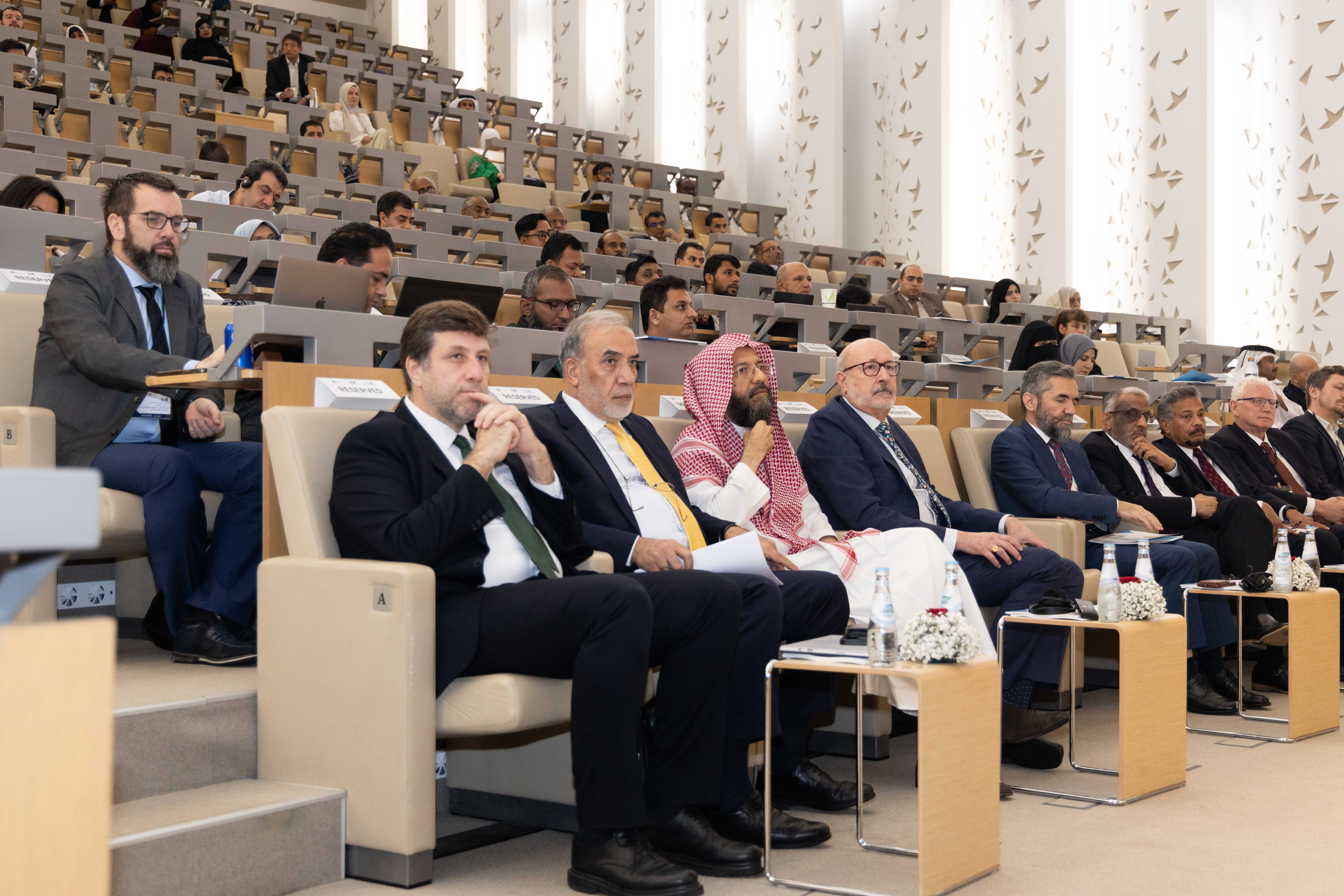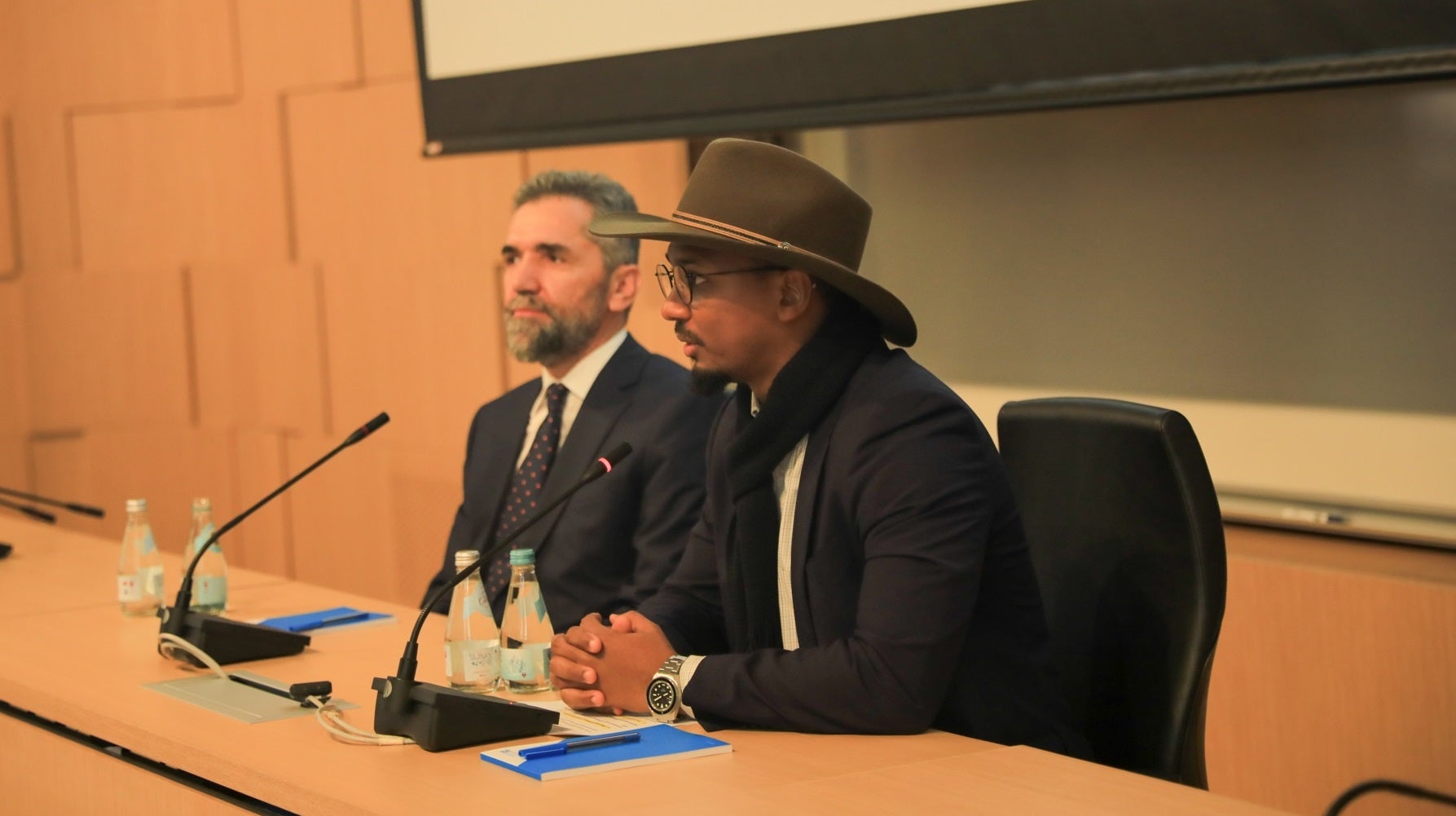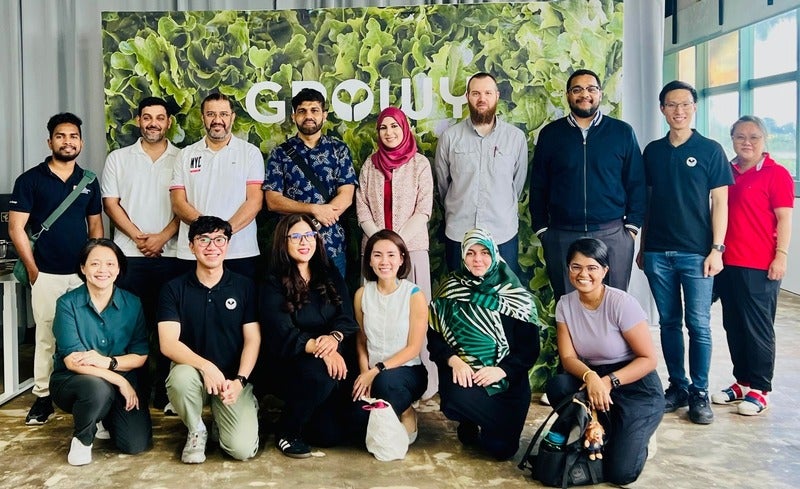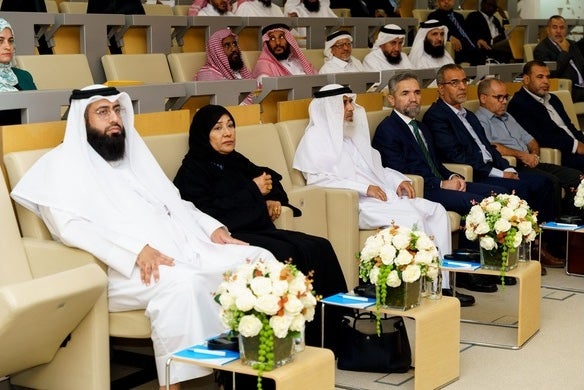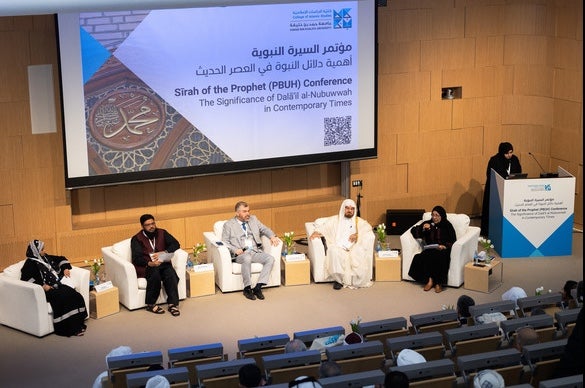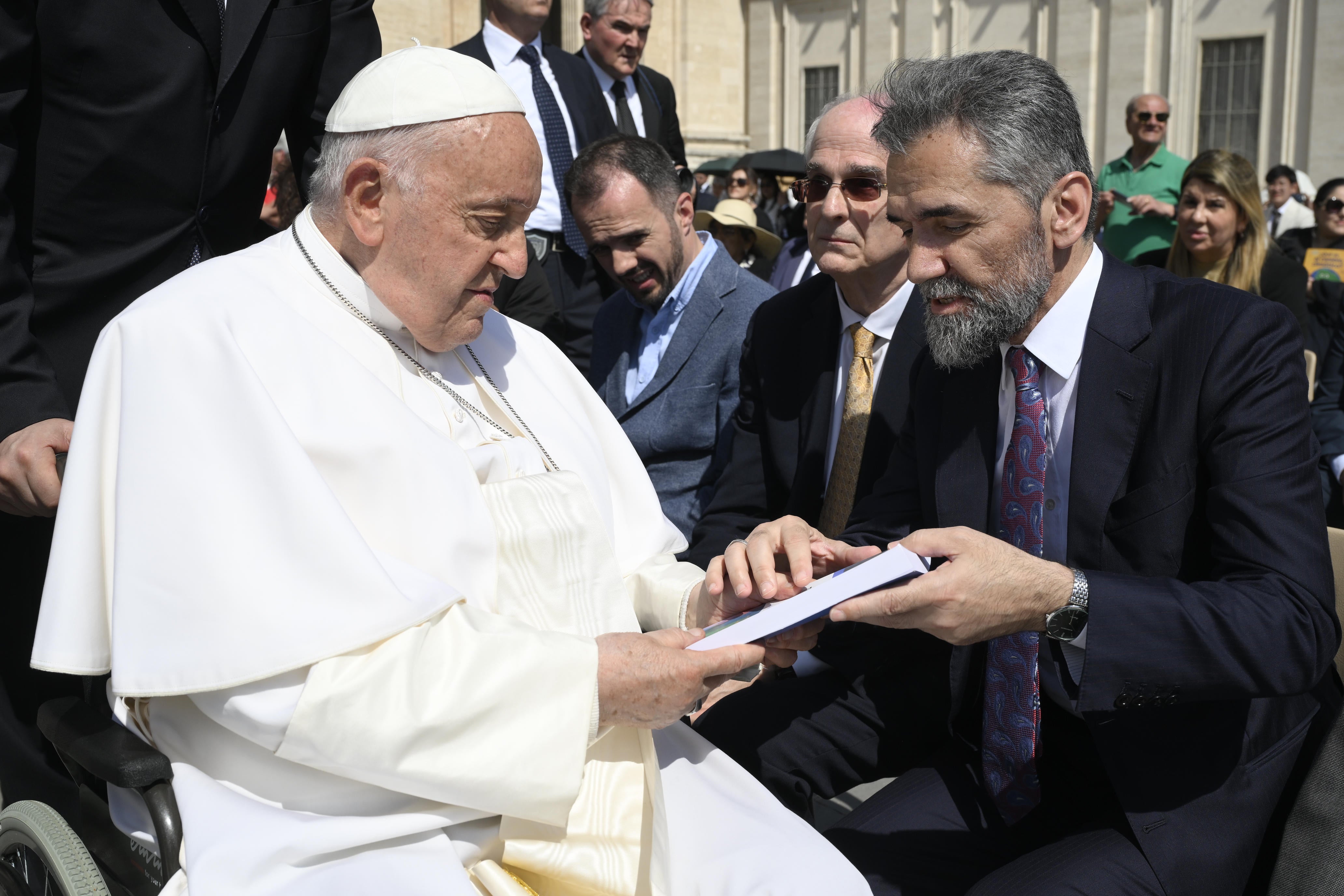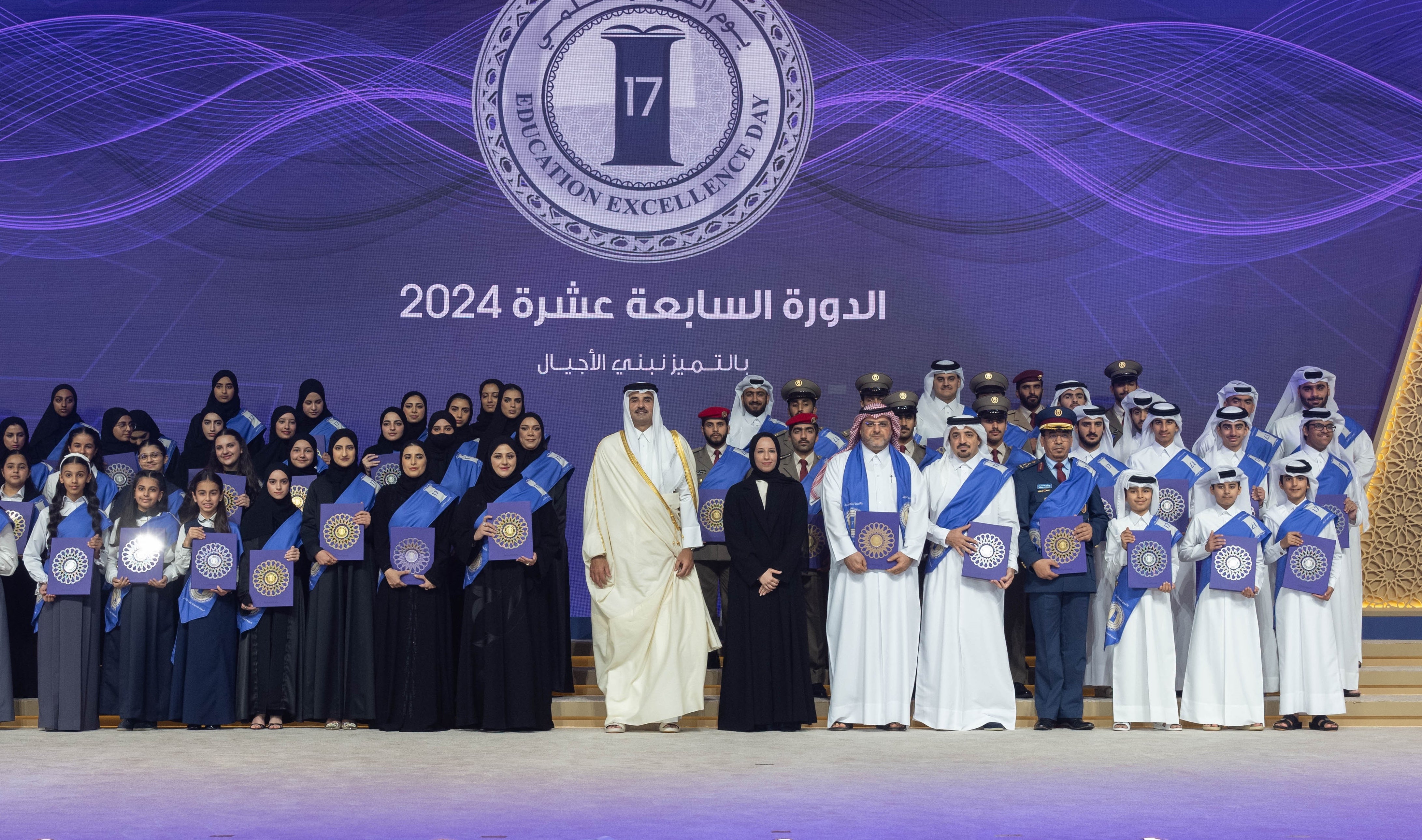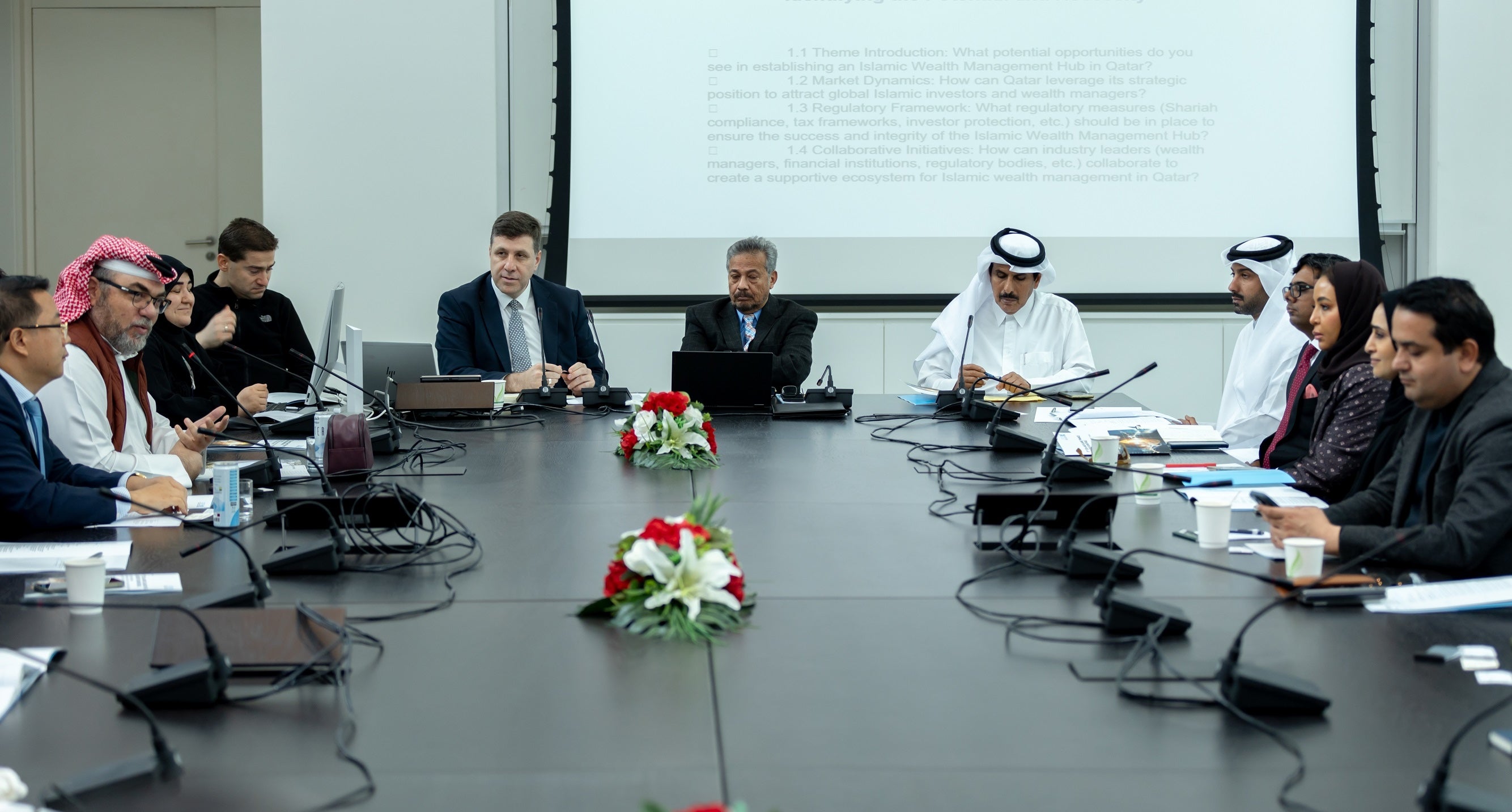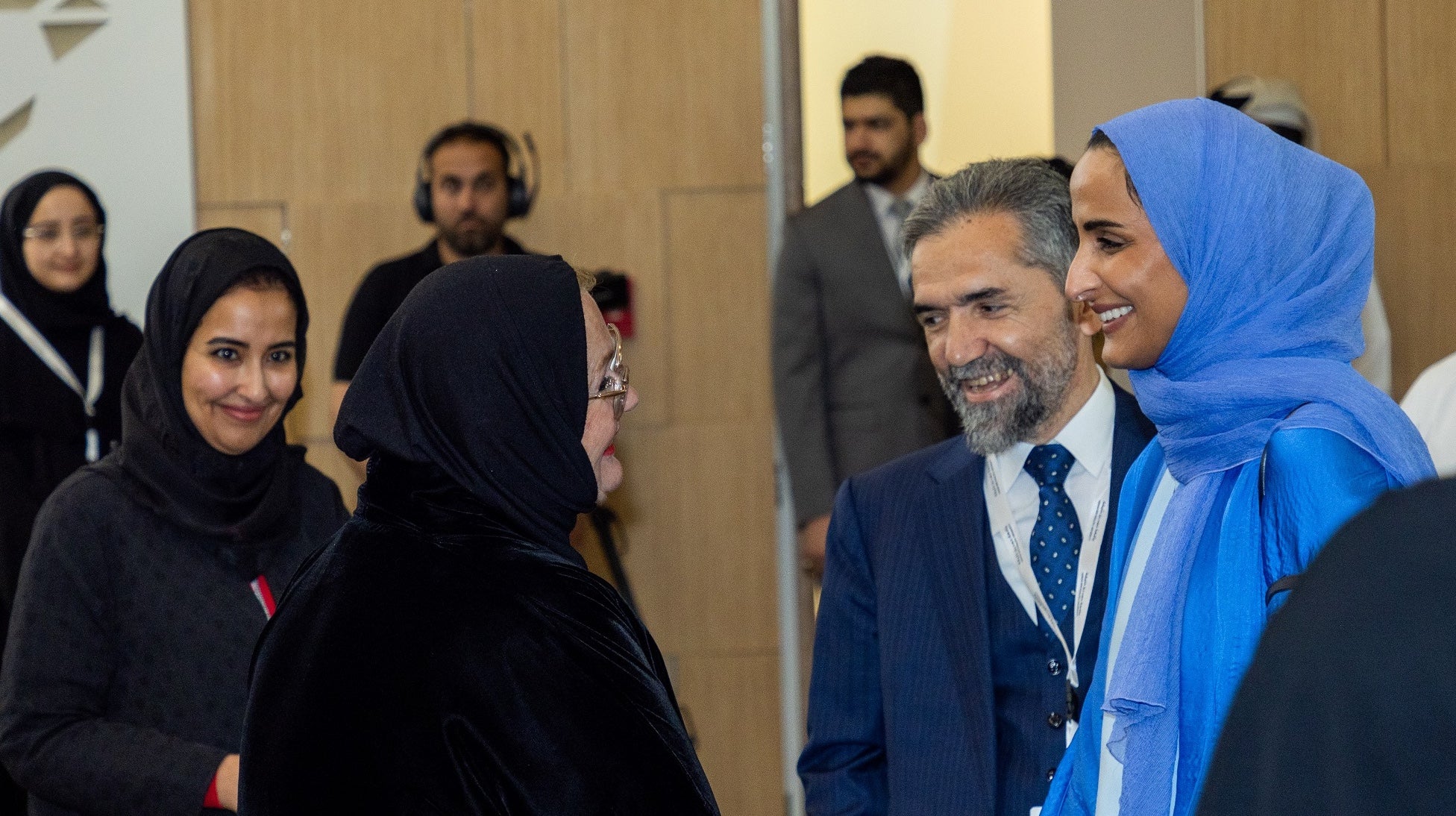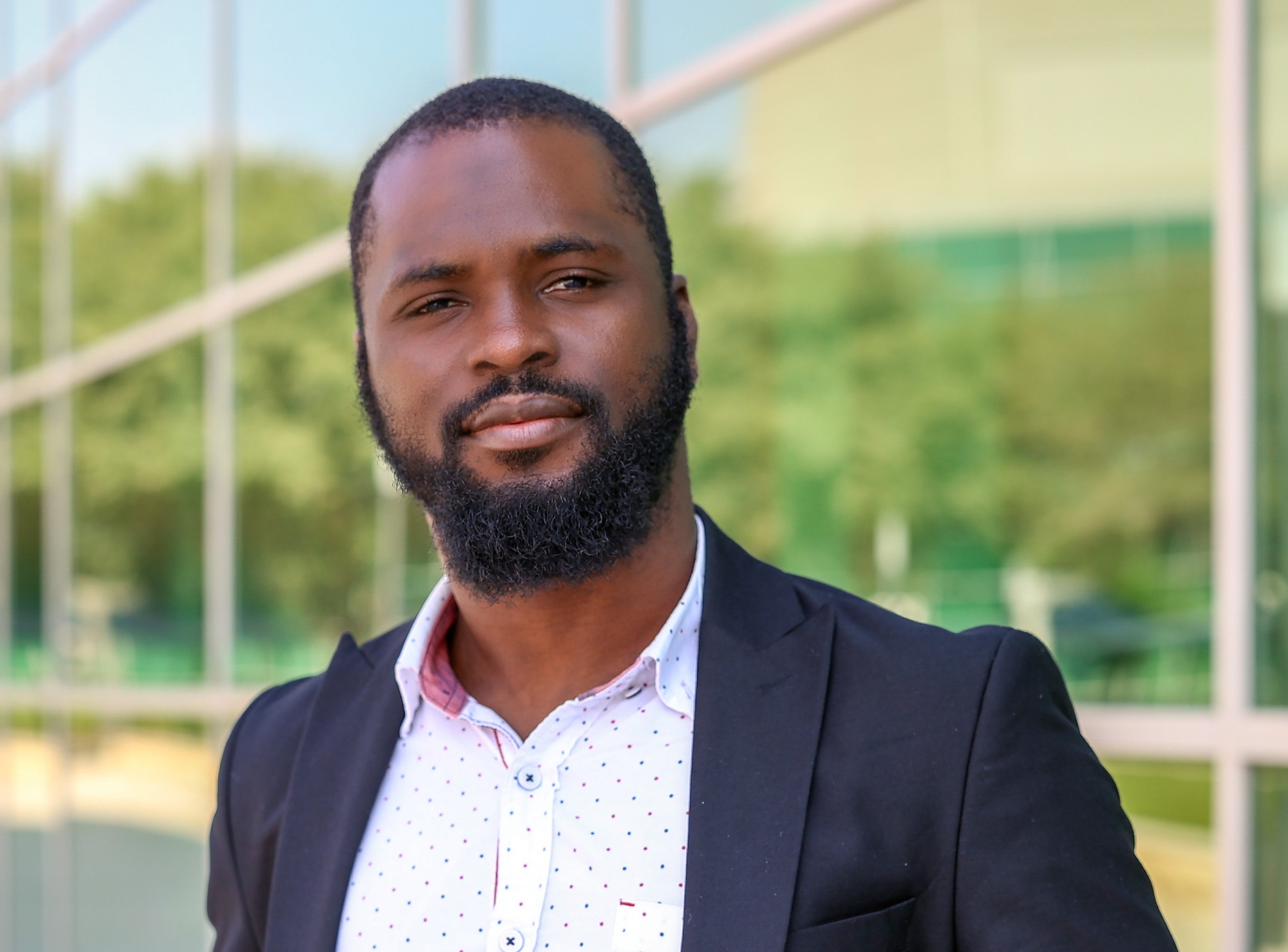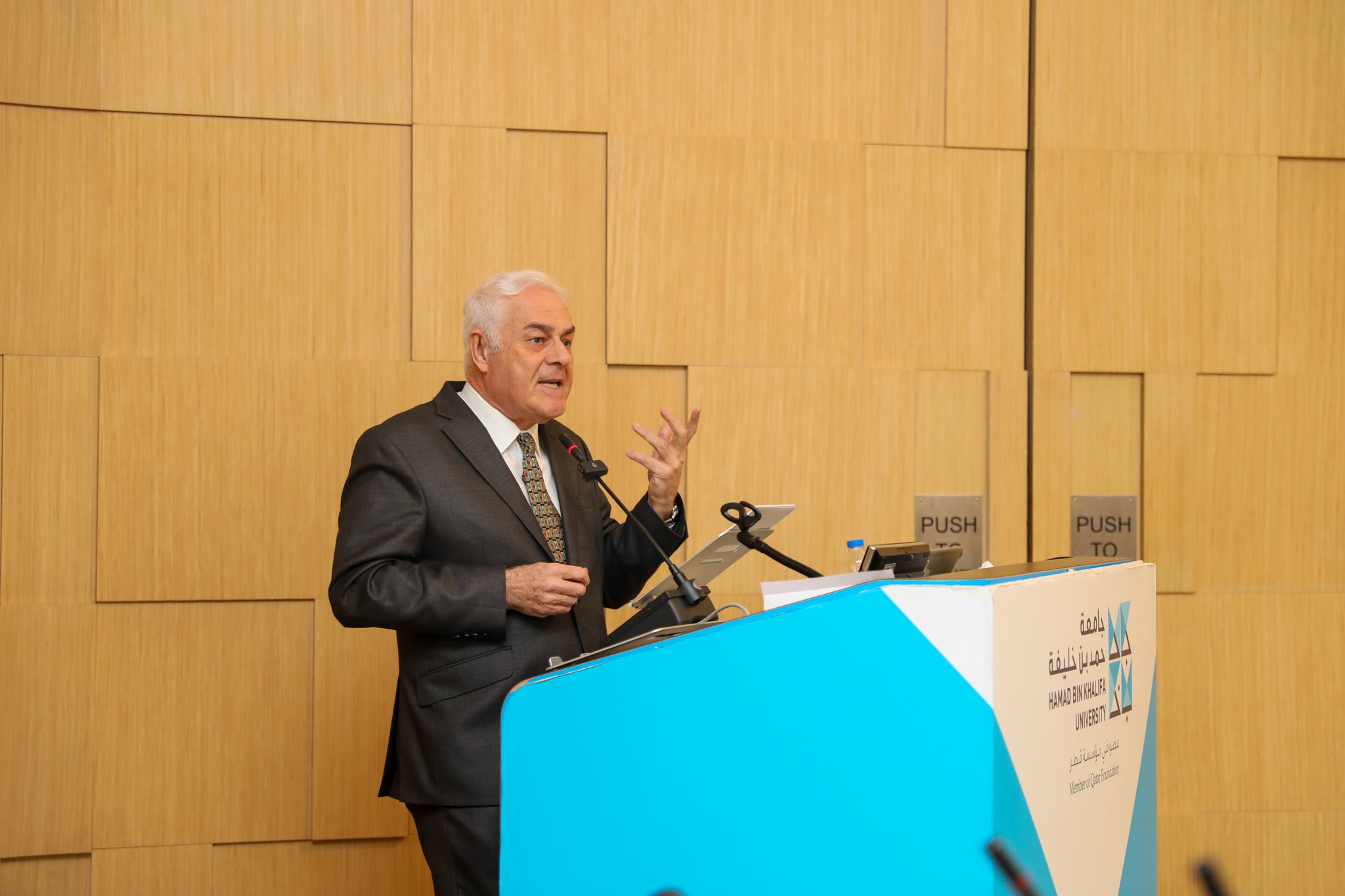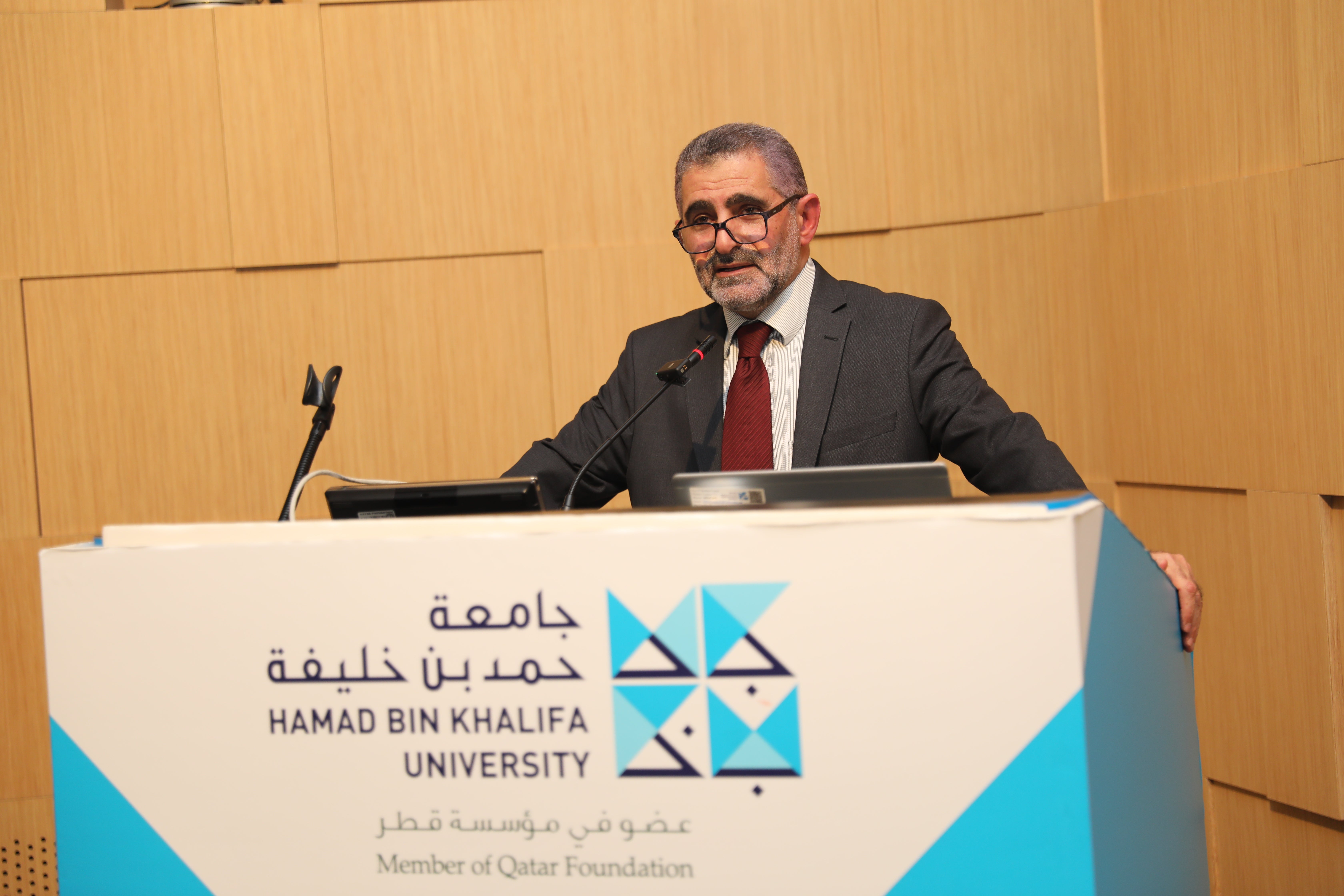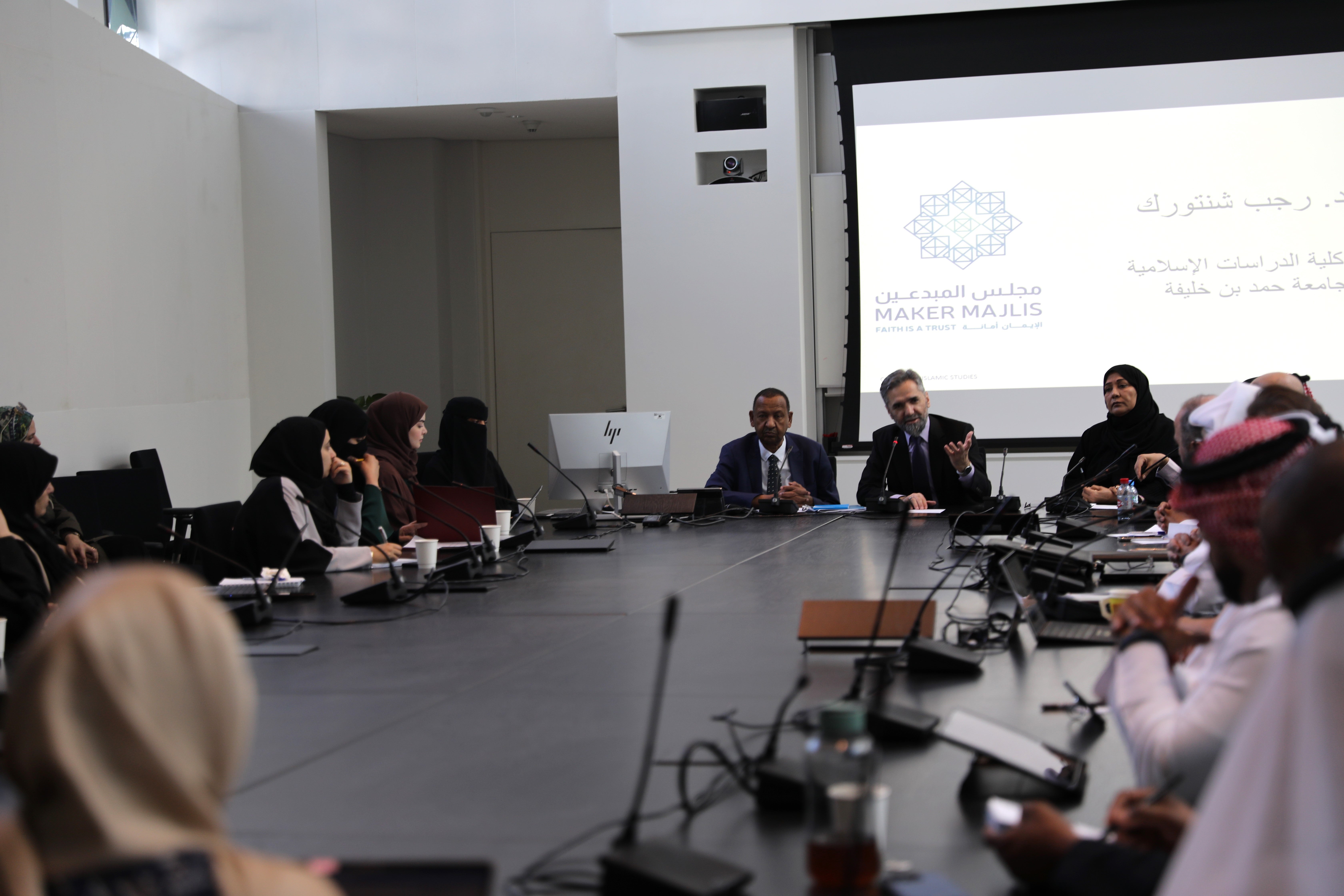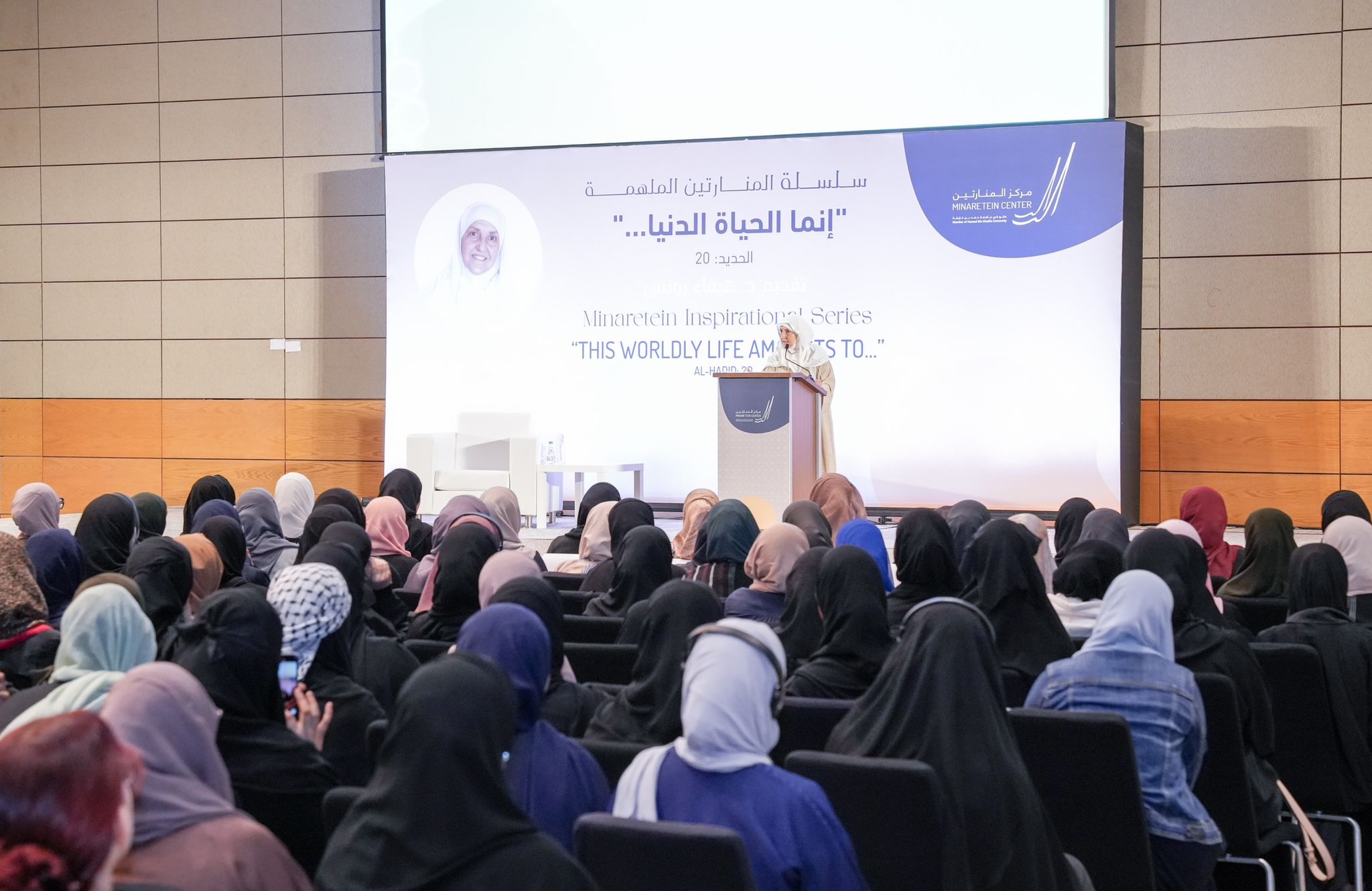
HBKU’s CIS, QFC, and QRDI Council Host 7th International Conference on Islamic Finance
Event highlighted Islamic finance as a catalyst for sustainable development
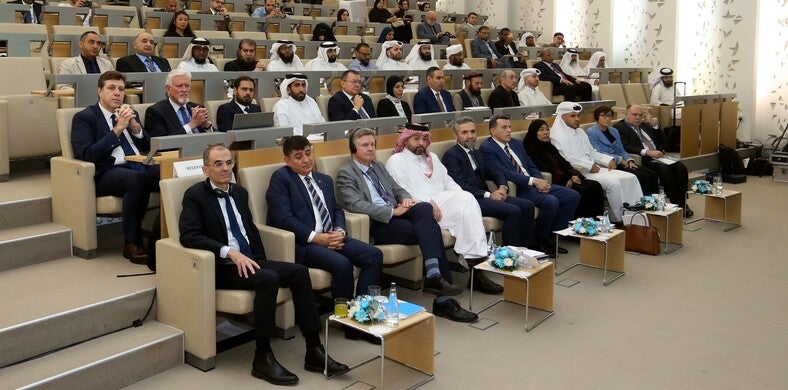
The Center for Islamic Economics and Finance (CIEF) at Hamad Bin Khalifa University’s (HBKU) College of Islamic Studies (CIS) partnered with the Qatar Financial Centre (QFC) and Qatar Research, Development, and Innovation (QRDI) Council to host the 7th International Conference on Islamic Finance (ICIF).
Held under the theme “Towards A Rooted Future of Islamic Finance,” the conference convened more than 400 practitioners, scholars, and experts from around the world to discuss how the ethical foundations of Islamic finance could be integrated within contemporary economic practices to help the sector navigate modern complexities while bridging tradition and innovation. Industry leaders and professionals from Google, the London Stock Exchange, Central Bank of the United Arab Emirates, Central Bank of Afghanistan, the Organisation of Islamic Cooperation Arbitration Centre, and more, exchanged insights with peers from the international finance community operating in the academic, public, and private sectors.
Dr. Ala Al-Fuqaha, Acting Provost and Associate Provost for Teaching and Learning, HBKU, and Dr. Recep Şentürk, Dean, CIS, welcomed attendees to the event. They were joined by Nasser Al-Tawil, Deputy CEO, Chief Legal Officer and Board Secretary, QFC, and Omar Abdelsattar, Senior Research Program Specialist, QRDI Council, who emphasized the importance of reimagining Islamic finance as a result of growing instability across the world.
Omar Abdelsattar, Senior Research Program Specialist, QRDI Council said: “Islamic finance holds immense potential as a blueprint for ethical progress, offering sustainable and inclusive solutions to today’s global challenges. At QRDI Council, we are committed to bridging tradition and technology to foster resilience and innovation. This conference and our partnership, exemplifies the power of collaboration in shaping a future where Islamic finance drives meaningful change and supports sustainable growth across economies worldwide.”
Commenting on proceedings, Dr. Ahmet Faruk Aysan, Conference Chair, ICIF, and Professor and Associate Dean, CIS, said: “This event is the culmination of a shared commitment between HBKU, QFC, and QRDI Council to sustain the advancement of Islamic finance. We directed our combined expertise to reinforce a knowledge exchange that helps us explore how we can meet our societies’ unique economic needs while adhering to fundamental religious values. As an advocate for innovation in Islamic studies, CIS works to foster a vibrant multidisciplinary dialogue that helps facilitate expertise and build capacity in Qatar and beyond.”
The conference agenda featured ten panel discussions highlighting Islamic finance as a catalyst for monetary and fiscal policy transformation, sustainable development and social resilience, and related issues. Other sessions included a presentation on the QFC sponsored report Expanding Horizons: A Report on Islamic Finance in Qatar, as well as a showcase of CIS students’ academic research in this field.
In keeping with other editions of the conference, all discussions will be published as conference papers, contributing to the wealth of Islamic finance expertise in the region and beyond.
Nasser Al-Tawil, Deputy CEO and Chief Legal Officer, QFC commented: "The 7th edition of ICIF demonstrates itself as a prominent platform for bringing together scholars, researchers, and practitioners from around the world to discuss significant global developments shaping the Islamic finance industry, and QFC is highly invested in creating opportunities for such dialogues, productive collaborations and joint initiatives that address key issues within this industry.
In 2023, CIS and QFC signed an agreement that will see the Centre co-host and sponsor the ICIF until 2027. With QRDI Council joining as a partner at this year’s conference, ICIF exemplifies their joint dedication to shaping a future where Islamic finance promotes meaningful and ethical change across economies.
Related News
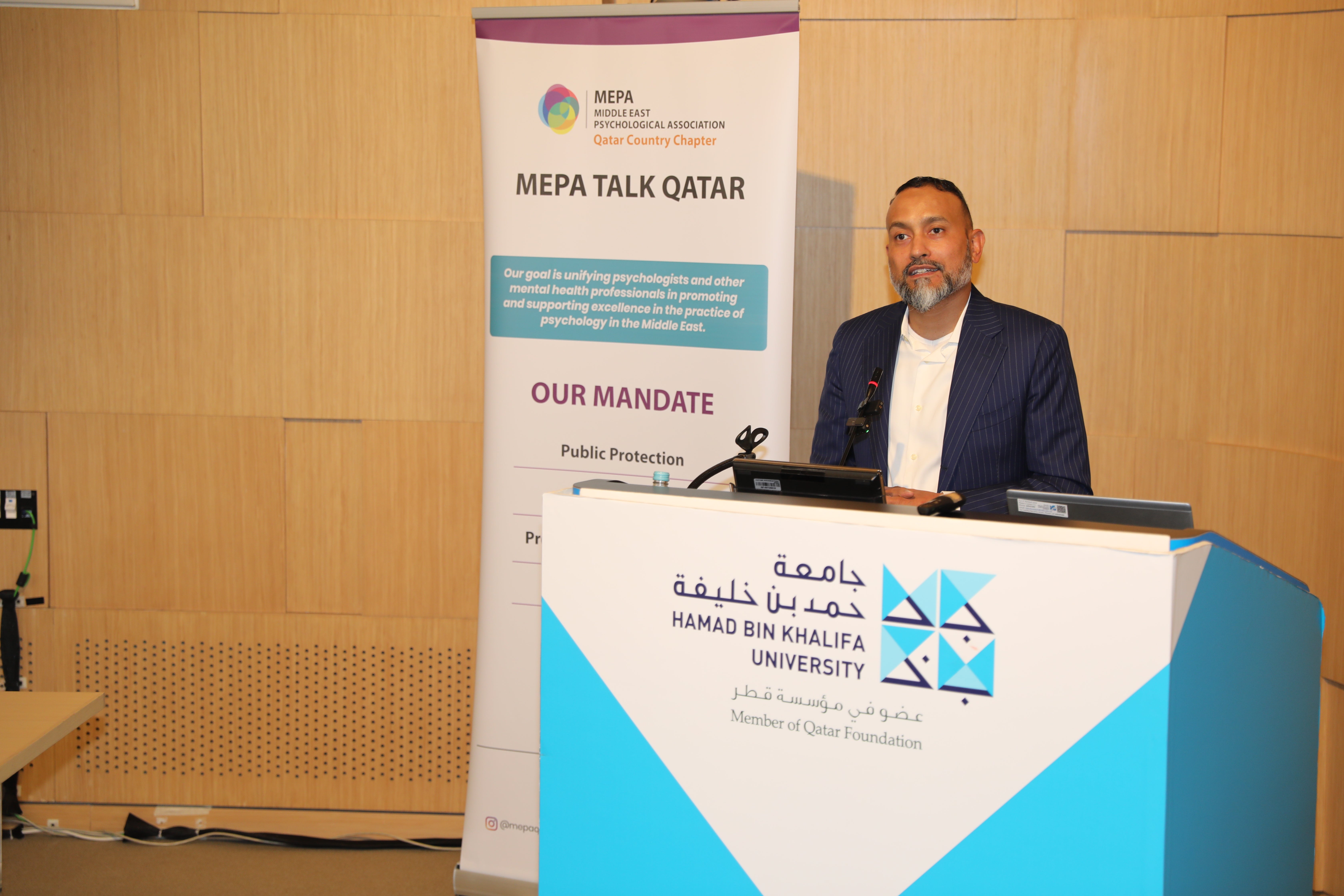
HBKU’s College of Islamic Studies Lecture Highlights Coping Strategies for Gaza Crisis
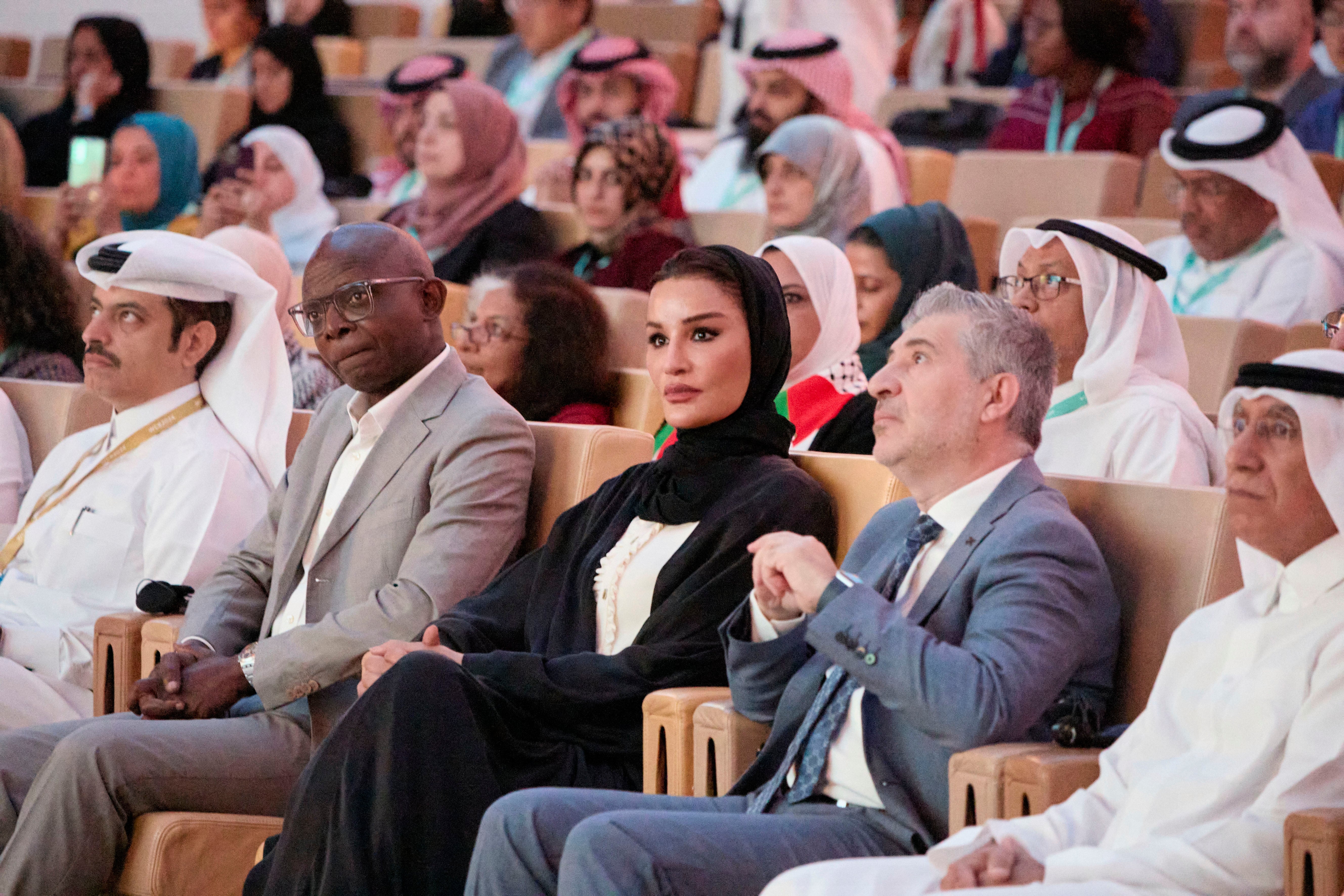
HH Sheikha Moza bint Nasser Witnesses HBKU and WISH Inaugurate First World Congress of Bioethics Held in the Middle East

Fifth Edition of Astrolabe: A CIS Student Research Journal Explores Contemporary Issues in Islam
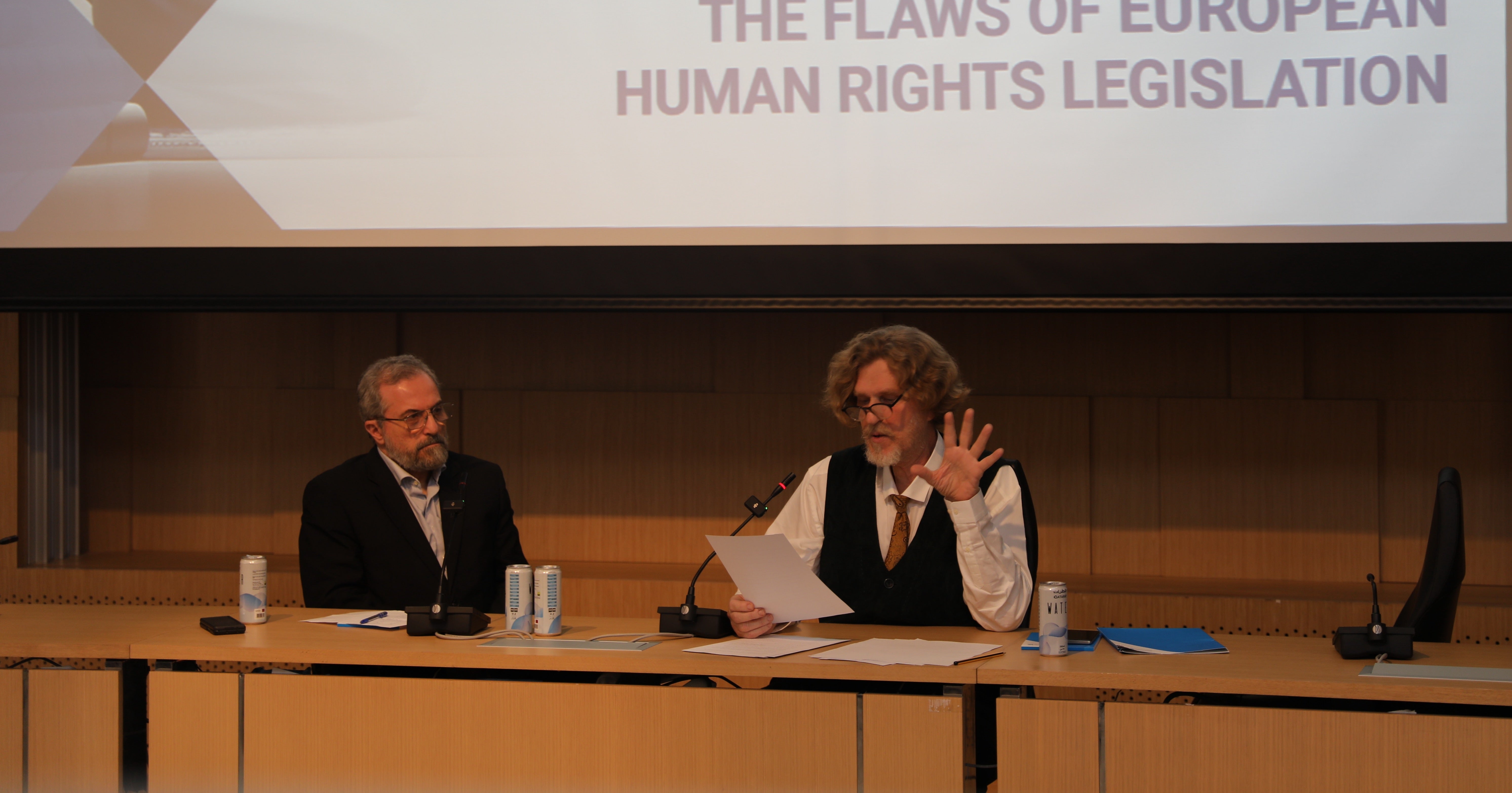
HBKU’s CIS Organizes Lecture Exploring Right to Belief Under European Human Rights Legislation
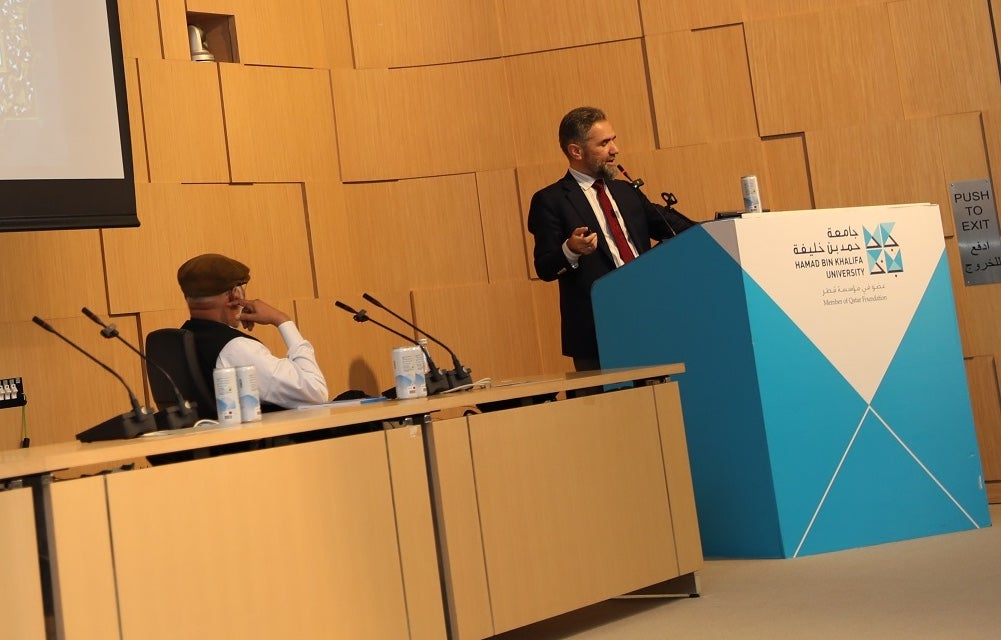
HBKU’s CIS Holds Lecture on the Sirah of the Prophet Muhammad’s (PBUH) Significance

HBKU’s College of Islamic Studies Lecture Highlights Coping Strategies for Gaza Crisis

HH Sheikha Moza bint Nasser Witnesses HBKU and WISH Inaugurate First World Congress of Bioethics Held in the Middle East

Fifth Edition of Astrolabe: A CIS Student Research Journal Explores Contemporary Issues in Islam

HBKU’s CIS Organizes Lecture Exploring Right to Belief Under European Human Rights Legislation

HBKU’s CIS Holds Lecture on the Sirah of the Prophet Muhammad’s (PBUH) Significance

HBKU’s College of Islamic Studies Lecture Highlights Coping Strategies for Gaza Crisis

HH Sheikha Moza bint Nasser Witnesses HBKU and WISH Inaugurate First World Congress of Bioethics Held in the Middle East

Fifth Edition of Astrolabe: A CIS Student Research Journal Explores Contemporary Issues in Islam

HBKU’s CIS Organizes Lecture Exploring Right to Belief Under European Human Rights Legislation

HBKU’s CIS Holds Lecture on the Sirah of the Prophet Muhammad’s (PBUH) Significance

HBKU’s College of Islamic Studies Lecture Highlights Coping Strategies for Gaza Crisis

HH Sheikha Moza bint Nasser Witnesses HBKU and WISH Inaugurate First World Congress of Bioethics Held in the Middle East

Fifth Edition of Astrolabe: A CIS Student Research Journal Explores Contemporary Issues in Islam

HBKU’s CIS Organizes Lecture Exploring Right to Belief Under European Human Rights Legislation

HBKU’s CIS Holds Lecture on the Sirah of the Prophet Muhammad’s (PBUH) Significance

HBKU’s College of Islamic Studies Lecture Highlights Coping Strategies for Gaza Crisis

HH Sheikha Moza bint Nasser Witnesses HBKU and WISH Inaugurate First World Congress of Bioethics Held in the Middle East

Fifth Edition of Astrolabe: A CIS Student Research Journal Explores Contemporary Issues in Islam

HBKU’s CIS Organizes Lecture Exploring Right to Belief Under European Human Rights Legislation

HBKU’s CIS Holds Lecture on the Sirah of the Prophet Muhammad’s (PBUH) Significance

HBKU’s College of Islamic Studies Lecture Highlights Coping Strategies for Gaza Crisis

HH Sheikha Moza bint Nasser Witnesses HBKU and WISH Inaugurate First World Congress of Bioethics Held in the Middle East

Fifth Edition of Astrolabe: A CIS Student Research Journal Explores Contemporary Issues in Islam

HBKU’s CIS Organizes Lecture Exploring Right to Belief Under European Human Rights Legislation

HBKU’s CIS Holds Lecture on the Sirah of the Prophet Muhammad’s (PBUH) Significance

HBKU’s College of Islamic Studies Lecture Highlights Coping Strategies for Gaza Crisis

HH Sheikha Moza bint Nasser Witnesses HBKU and WISH Inaugurate First World Congress of Bioethics Held in the Middle East

Fifth Edition of Astrolabe: A CIS Student Research Journal Explores Contemporary Issues in Islam

HBKU’s CIS Organizes Lecture Exploring Right to Belief Under European Human Rights Legislation

HBKU’s CIS Holds Lecture on the Sirah of the Prophet Muhammad’s (PBUH) Significance

HBKU’s College of Islamic Studies Lecture Highlights Coping Strategies for Gaza Crisis

HH Sheikha Moza bint Nasser Witnesses HBKU and WISH Inaugurate First World Congress of Bioethics Held in the Middle East

Fifth Edition of Astrolabe: A CIS Student Research Journal Explores Contemporary Issues in Islam

HBKU’s CIS Organizes Lecture Exploring Right to Belief Under European Human Rights Legislation

HBKU’s CIS Holds Lecture on the Sirah of the Prophet Muhammad’s (PBUH) Significance

HBKU’s College of Islamic Studies Lecture Highlights Coping Strategies for Gaza Crisis

HH Sheikha Moza bint Nasser Witnesses HBKU and WISH Inaugurate First World Congress of Bioethics Held in the Middle East

Fifth Edition of Astrolabe: A CIS Student Research Journal Explores Contemporary Issues in Islam

HBKU’s CIS Organizes Lecture Exploring Right to Belief Under European Human Rights Legislation

HBKU’s CIS Holds Lecture on the Sirah of the Prophet Muhammad’s (PBUH) Significance

HBKU’s College of Islamic Studies Lecture Highlights Coping Strategies for Gaza Crisis

HH Sheikha Moza bint Nasser Witnesses HBKU and WISH Inaugurate First World Congress of Bioethics Held in the Middle East

Fifth Edition of Astrolabe: A CIS Student Research Journal Explores Contemporary Issues in Islam

HBKU’s CIS Organizes Lecture Exploring Right to Belief Under European Human Rights Legislation

HBKU’s CIS Holds Lecture on the Sirah of the Prophet Muhammad’s (PBUH) Significance

HBKU’s College of Islamic Studies Lecture Highlights Coping Strategies for Gaza Crisis

HH Sheikha Moza bint Nasser Witnesses HBKU and WISH Inaugurate First World Congress of Bioethics Held in the Middle East

Fifth Edition of Astrolabe: A CIS Student Research Journal Explores Contemporary Issues in Islam

HBKU’s CIS Organizes Lecture Exploring Right to Belief Under European Human Rights Legislation

HBKU’s CIS Holds Lecture on the Sirah of the Prophet Muhammad’s (PBUH) Significance

HBKU’s College of Islamic Studies Lecture Highlights Coping Strategies for Gaza Crisis

HH Sheikha Moza bint Nasser Witnesses HBKU and WISH Inaugurate First World Congress of Bioethics Held in the Middle East

Fifth Edition of Astrolabe: A CIS Student Research Journal Explores Contemporary Issues in Islam

HBKU’s CIS Organizes Lecture Exploring Right to Belief Under European Human Rights Legislation

HBKU’s CIS Holds Lecture on the Sirah of the Prophet Muhammad’s (PBUH) Significance

HBKU’s College of Islamic Studies Lecture Highlights Coping Strategies for Gaza Crisis

HH Sheikha Moza bint Nasser Witnesses HBKU and WISH Inaugurate First World Congress of Bioethics Held in the Middle East

Fifth Edition of Astrolabe: A CIS Student Research Journal Explores Contemporary Issues in Islam

HBKU’s CIS Organizes Lecture Exploring Right to Belief Under European Human Rights Legislation

HBKU’s CIS Holds Lecture on the Sirah of the Prophet Muhammad’s (PBUH) Significance

HBKU’s College of Islamic Studies Lecture Highlights Coping Strategies for Gaza Crisis

HH Sheikha Moza bint Nasser Witnesses HBKU and WISH Inaugurate First World Congress of Bioethics Held in the Middle East

Fifth Edition of Astrolabe: A CIS Student Research Journal Explores Contemporary Issues in Islam

HBKU’s CIS Organizes Lecture Exploring Right to Belief Under European Human Rights Legislation

HBKU’s CIS Holds Lecture on the Sirah of the Prophet Muhammad’s (PBUH) Significance

HBKU’s College of Islamic Studies Lecture Highlights Coping Strategies for Gaza Crisis

HH Sheikha Moza bint Nasser Witnesses HBKU and WISH Inaugurate First World Congress of Bioethics Held in the Middle East

Fifth Edition of Astrolabe: A CIS Student Research Journal Explores Contemporary Issues in Islam

HBKU’s CIS Organizes Lecture Exploring Right to Belief Under European Human Rights Legislation

HBKU’s CIS Holds Lecture on the Sirah of the Prophet Muhammad’s (PBUH) Significance

HBKU’s College of Islamic Studies Lecture Highlights Coping Strategies for Gaza Crisis

HH Sheikha Moza bint Nasser Witnesses HBKU and WISH Inaugurate First World Congress of Bioethics Held in the Middle East

Fifth Edition of Astrolabe: A CIS Student Research Journal Explores Contemporary Issues in Islam

HBKU’s CIS Organizes Lecture Exploring Right to Belief Under European Human Rights Legislation

HBKU’s CIS Holds Lecture on the Sirah of the Prophet Muhammad’s (PBUH) Significance

HBKU’s College of Islamic Studies Lecture Highlights Coping Strategies for Gaza Crisis

HH Sheikha Moza bint Nasser Witnesses HBKU and WISH Inaugurate First World Congress of Bioethics Held in the Middle East

Fifth Edition of Astrolabe: A CIS Student Research Journal Explores Contemporary Issues in Islam

HBKU’s CIS Organizes Lecture Exploring Right to Belief Under European Human Rights Legislation

HBKU’s CIS Holds Lecture on the Sirah of the Prophet Muhammad’s (PBUH) Significance

HBKU’s College of Islamic Studies Lecture Highlights Coping Strategies for Gaza Crisis

HH Sheikha Moza bint Nasser Witnesses HBKU and WISH Inaugurate First World Congress of Bioethics Held in the Middle East

Fifth Edition of Astrolabe: A CIS Student Research Journal Explores Contemporary Issues in Islam

HBKU’s CIS Organizes Lecture Exploring Right to Belief Under European Human Rights Legislation

HBKU’s CIS Holds Lecture on the Sirah of the Prophet Muhammad’s (PBUH) Significance

HBKU’s College of Islamic Studies Lecture Highlights Coping Strategies for Gaza Crisis

HH Sheikha Moza bint Nasser Witnesses HBKU and WISH Inaugurate First World Congress of Bioethics Held in the Middle East

Fifth Edition of Astrolabe: A CIS Student Research Journal Explores Contemporary Issues in Islam

HBKU’s CIS Organizes Lecture Exploring Right to Belief Under European Human Rights Legislation

HBKU’s CIS Holds Lecture on the Sirah of the Prophet Muhammad’s (PBUH) Significance

HBKU’s College of Islamic Studies Lecture Highlights Coping Strategies for Gaza Crisis

HH Sheikha Moza bint Nasser Witnesses HBKU and WISH Inaugurate First World Congress of Bioethics Held in the Middle East

Fifth Edition of Astrolabe: A CIS Student Research Journal Explores Contemporary Issues in Islam

HBKU’s CIS Organizes Lecture Exploring Right to Belief Under European Human Rights Legislation

HBKU’s CIS Holds Lecture on the Sirah of the Prophet Muhammad’s (PBUH) Significance

HBKU’s College of Islamic Studies Lecture Highlights Coping Strategies for Gaza Crisis

HH Sheikha Moza bint Nasser Witnesses HBKU and WISH Inaugurate First World Congress of Bioethics Held in the Middle East

Fifth Edition of Astrolabe: A CIS Student Research Journal Explores Contemporary Issues in Islam

HBKU’s CIS Organizes Lecture Exploring Right to Belief Under European Human Rights Legislation

HBKU’s CIS Holds Lecture on the Sirah of the Prophet Muhammad’s (PBUH) Significance

HBKU’s College of Islamic Studies Lecture Highlights Coping Strategies for Gaza Crisis

HH Sheikha Moza bint Nasser Witnesses HBKU and WISH Inaugurate First World Congress of Bioethics Held in the Middle East

Fifth Edition of Astrolabe: A CIS Student Research Journal Explores Contemporary Issues in Islam

HBKU’s CIS Organizes Lecture Exploring Right to Belief Under European Human Rights Legislation

HBKU’s CIS Holds Lecture on the Sirah of the Prophet Muhammad’s (PBUH) Significance

HBKU’s College of Islamic Studies Lecture Highlights Coping Strategies for Gaza Crisis

HH Sheikha Moza bint Nasser Witnesses HBKU and WISH Inaugurate First World Congress of Bioethics Held in the Middle East

Fifth Edition of Astrolabe: A CIS Student Research Journal Explores Contemporary Issues in Islam

HBKU’s CIS Organizes Lecture Exploring Right to Belief Under European Human Rights Legislation

HBKU’s CIS Holds Lecture on the Sirah of the Prophet Muhammad’s (PBUH) Significance

HBKU’s College of Islamic Studies Lecture Highlights Coping Strategies for Gaza Crisis

HH Sheikha Moza bint Nasser Witnesses HBKU and WISH Inaugurate First World Congress of Bioethics Held in the Middle East

Fifth Edition of Astrolabe: A CIS Student Research Journal Explores Contemporary Issues in Islam

HBKU’s CIS Organizes Lecture Exploring Right to Belief Under European Human Rights Legislation

HBKU’s CIS Holds Lecture on the Sirah of the Prophet Muhammad’s (PBUH) Significance

HBKU’s College of Islamic Studies Lecture Highlights Coping Strategies for Gaza Crisis

HH Sheikha Moza bint Nasser Witnesses HBKU and WISH Inaugurate First World Congress of Bioethics Held in the Middle East

Fifth Edition of Astrolabe: A CIS Student Research Journal Explores Contemporary Issues in Islam

HBKU’s CIS Organizes Lecture Exploring Right to Belief Under European Human Rights Legislation

HBKU’s CIS Holds Lecture on the Sirah of the Prophet Muhammad’s (PBUH) Significance

HBKU’s College of Islamic Studies Lecture Highlights Coping Strategies for Gaza Crisis

HH Sheikha Moza bint Nasser Witnesses HBKU and WISH Inaugurate First World Congress of Bioethics Held in the Middle East

Fifth Edition of Astrolabe: A CIS Student Research Journal Explores Contemporary Issues in Islam

HBKU’s CIS Organizes Lecture Exploring Right to Belief Under European Human Rights Legislation

HBKU’s CIS Holds Lecture on the Sirah of the Prophet Muhammad’s (PBUH) Significance

HBKU’s College of Islamic Studies Lecture Highlights Coping Strategies for Gaza Crisis

HH Sheikha Moza bint Nasser Witnesses HBKU and WISH Inaugurate First World Congress of Bioethics Held in the Middle East

Fifth Edition of Astrolabe: A CIS Student Research Journal Explores Contemporary Issues in Islam

HBKU’s CIS Organizes Lecture Exploring Right to Belief Under European Human Rights Legislation

HBKU’s CIS Holds Lecture on the Sirah of the Prophet Muhammad’s (PBUH) Significance

HBKU’s College of Islamic Studies Lecture Highlights Coping Strategies for Gaza Crisis

HH Sheikha Moza bint Nasser Witnesses HBKU and WISH Inaugurate First World Congress of Bioethics Held in the Middle East

Fifth Edition of Astrolabe: A CIS Student Research Journal Explores Contemporary Issues in Islam

HBKU’s CIS Organizes Lecture Exploring Right to Belief Under European Human Rights Legislation

HBKU’s CIS Holds Lecture on the Sirah of the Prophet Muhammad’s (PBUH) Significance

HBKU’s College of Islamic Studies Lecture Highlights Coping Strategies for Gaza Crisis

HH Sheikha Moza bint Nasser Witnesses HBKU and WISH Inaugurate First World Congress of Bioethics Held in the Middle East

Fifth Edition of Astrolabe: A CIS Student Research Journal Explores Contemporary Issues in Islam

HBKU’s CIS Organizes Lecture Exploring Right to Belief Under European Human Rights Legislation

HBKU’s CIS Holds Lecture on the Sirah of the Prophet Muhammad’s (PBUH) Significance

HBKU’s College of Islamic Studies Lecture Highlights Coping Strategies for Gaza Crisis

HH Sheikha Moza bint Nasser Witnesses HBKU and WISH Inaugurate First World Congress of Bioethics Held in the Middle East

Fifth Edition of Astrolabe: A CIS Student Research Journal Explores Contemporary Issues in Islam

HBKU’s CIS Organizes Lecture Exploring Right to Belief Under European Human Rights Legislation

HBKU’s CIS Holds Lecture on the Sirah of the Prophet Muhammad’s (PBUH) Significance

HBKU’s College of Islamic Studies Lecture Highlights Coping Strategies for Gaza Crisis

HH Sheikha Moza bint Nasser Witnesses HBKU and WISH Inaugurate First World Congress of Bioethics Held in the Middle East

Fifth Edition of Astrolabe: A CIS Student Research Journal Explores Contemporary Issues in Islam

HBKU’s CIS Organizes Lecture Exploring Right to Belief Under European Human Rights Legislation

HBKU’s CIS Holds Lecture on the Sirah of the Prophet Muhammad’s (PBUH) Significance

HBKU’s College of Islamic Studies Lecture Highlights Coping Strategies for Gaza Crisis

HH Sheikha Moza bint Nasser Witnesses HBKU and WISH Inaugurate First World Congress of Bioethics Held in the Middle East

Fifth Edition of Astrolabe: A CIS Student Research Journal Explores Contemporary Issues in Islam

HBKU’s CIS Organizes Lecture Exploring Right to Belief Under European Human Rights Legislation

HBKU’s CIS Holds Lecture on the Sirah of the Prophet Muhammad’s (PBUH) Significance

HBKU’s College of Islamic Studies Lecture Highlights Coping Strategies for Gaza Crisis

HH Sheikha Moza bint Nasser Witnesses HBKU and WISH Inaugurate First World Congress of Bioethics Held in the Middle East

Fifth Edition of Astrolabe: A CIS Student Research Journal Explores Contemporary Issues in Islam

HBKU’s CIS Organizes Lecture Exploring Right to Belief Under European Human Rights Legislation

HBKU’s CIS Holds Lecture on the Sirah of the Prophet Muhammad’s (PBUH) Significance

HBKU’s College of Islamic Studies Lecture Highlights Coping Strategies for Gaza Crisis

HH Sheikha Moza bint Nasser Witnesses HBKU and WISH Inaugurate First World Congress of Bioethics Held in the Middle East

Fifth Edition of Astrolabe: A CIS Student Research Journal Explores Contemporary Issues in Islam

HBKU’s CIS Organizes Lecture Exploring Right to Belief Under European Human Rights Legislation

HBKU’s CIS Holds Lecture on the Sirah of the Prophet Muhammad’s (PBUH) Significance

HBKU’s College of Islamic Studies Lecture Highlights Coping Strategies for Gaza Crisis

HH Sheikha Moza bint Nasser Witnesses HBKU and WISH Inaugurate First World Congress of Bioethics Held in the Middle East

Fifth Edition of Astrolabe: A CIS Student Research Journal Explores Contemporary Issues in Islam

HBKU’s CIS Organizes Lecture Exploring Right to Belief Under European Human Rights Legislation

HBKU’s CIS Holds Lecture on the Sirah of the Prophet Muhammad’s (PBUH) Significance

HBKU’s College of Islamic Studies Lecture Highlights Coping Strategies for Gaza Crisis

HH Sheikha Moza bint Nasser Witnesses HBKU and WISH Inaugurate First World Congress of Bioethics Held in the Middle East

Fifth Edition of Astrolabe: A CIS Student Research Journal Explores Contemporary Issues in Islam

HBKU’s CIS Organizes Lecture Exploring Right to Belief Under European Human Rights Legislation

HBKU’s CIS Holds Lecture on the Sirah of the Prophet Muhammad’s (PBUH) Significance

HBKU’s College of Islamic Studies Lecture Highlights Coping Strategies for Gaza Crisis

HH Sheikha Moza bint Nasser Witnesses HBKU and WISH Inaugurate First World Congress of Bioethics Held in the Middle East

Fifth Edition of Astrolabe: A CIS Student Research Journal Explores Contemporary Issues in Islam

HBKU’s CIS Organizes Lecture Exploring Right to Belief Under European Human Rights Legislation

HBKU’s CIS Holds Lecture on the Sirah of the Prophet Muhammad’s (PBUH) Significance

HBKU’s College of Islamic Studies Lecture Highlights Coping Strategies for Gaza Crisis

HH Sheikha Moza bint Nasser Witnesses HBKU and WISH Inaugurate First World Congress of Bioethics Held in the Middle East

Fifth Edition of Astrolabe: A CIS Student Research Journal Explores Contemporary Issues in Islam

HBKU’s CIS Organizes Lecture Exploring Right to Belief Under European Human Rights Legislation

HBKU’s CIS Holds Lecture on the Sirah of the Prophet Muhammad’s (PBUH) Significance

HBKU’s College of Islamic Studies Lecture Highlights Coping Strategies for Gaza Crisis

HH Sheikha Moza bint Nasser Witnesses HBKU and WISH Inaugurate First World Congress of Bioethics Held in the Middle East

Fifth Edition of Astrolabe: A CIS Student Research Journal Explores Contemporary Issues in Islam

HBKU’s CIS Organizes Lecture Exploring Right to Belief Under European Human Rights Legislation

HBKU’s CIS Holds Lecture on the Sirah of the Prophet Muhammad’s (PBUH) Significance

HBKU’s College of Islamic Studies Lecture Highlights Coping Strategies for Gaza Crisis

HH Sheikha Moza bint Nasser Witnesses HBKU and WISH Inaugurate First World Congress of Bioethics Held in the Middle East

Fifth Edition of Astrolabe: A CIS Student Research Journal Explores Contemporary Issues in Islam

HBKU’s CIS Organizes Lecture Exploring Right to Belief Under European Human Rights Legislation

HBKU’s CIS Holds Lecture on the Sirah of the Prophet Muhammad’s (PBUH) Significance






